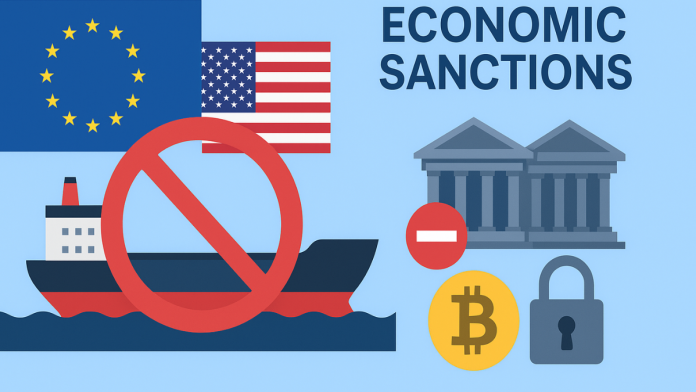The European Union is preparing another round of sanctions to increase economic pressure on Russia over the ongoing war in Ukraine. This would be the 19th package of measures since the conflict began in 2022.
The new package under discussion includes restrictions on Russian banks, oil firms, and payment systems. Officials are also considering tighter rules for cryptocurrency exchanges linked to Russia. Such steps are meant to reduce Moscow’s ability to access global money markets and weaken its oil revenues, which remain one of its biggest sources of income.
The European Union representatives are set to meet United States officials this week to coordinate sanctions. Both sides are aiming to align their steps in order to close loopholes and make restrictions harder to bypass. The United States has been pushing for stronger measures, particularly against Russia’s oil shipping networks and energy giants.
Hei Seki sanctioned by China for long-standing criticism on Taiwan and disputed territories
Targeting Oil, Banks, and Shadow Fleet
One of the biggest areas of focus is Russia’s oil trade. Europe is weighing stricter rules against Russian oil tankers, including unofficial or “shadow” vessels used to bypass sanctions. Measures being considered include banning re-insurance for these tankers and placing new limits on ports handling them. Re-insurance is insurance that insurance companies themselves buy to cover very large risks, such as accidents or oil spills. Without it, shipping Russian oil becomes far more difficult and expensive.
Exemptions that previously allowed major Russian energy companies to operate with fewer restrictions may now be removed. Companies like Rosneft and Lukoil could face tougher limitations on selling oil and dealing with foreign partners. By doing this, the European Union hopes to cut into the profits Russia makes from selling energy abroad.
Banks and payment networks are also in the spotlight. The plan includes possible bans on Russia’s internal payment and credit card systems. Cryptocurrency exchanges could face new restrictions, making it harder for Russian institutions and businesses to use digital assets to avoid sanctions.
Chinese bond market to welcome Russian energy issuers despite sanction risks
Military supplies are another key concern. The European Union is discussing broader export bans on equipment that could be used in Russia’s defense industry. These restrictions may also apply to international firms, including Chinese companies, that provide parts and technology helping Moscow to boost its drone production.
Anti-Circumvention Tool and Wider Measures
For the first time, the EU is considering using its special ‘anti-circumvention tool’ against Kazakhstan. This tool is meant to stop banned goods from being sent to another country first and then secretly re-exported to Russia, closing loopholes in existing sanctions. Trade data suggests that some machinery exported to Kazakhstan may be redirected to Russia for use in weapons manufacturing. If applied, this tool would stop certain goods from being exported to Kazakhstan to prevent backdoor sales to Russia.
Trump backs Treasury warning of Russian collapse under new sanctions
Other possible actions include visa restrictions, tighter controls on services linked to military use such as artificial intelligence, and limits on ports that deal with sanctioned vessels. These measures are designed to make it more difficult for Russia to reroute trade and technology through third countries.
Russia has faced many sanctions since the start of the war, but it has managed to reduce some of the damage by turning to other partners like China and India. It continues to sell large amounts of oil to Asian markets while importing restricted goods through new trade channels. The European Union and the United States hope that closing these remaining gaps will increase the strain on Moscow’s economy.
European Union ambassadors have already been briefed on the draft sanctions. The proposal will go through rounds of discussion among member states before being formally presented. Officials say changes are still possible as talks progress in the coming weeks.


